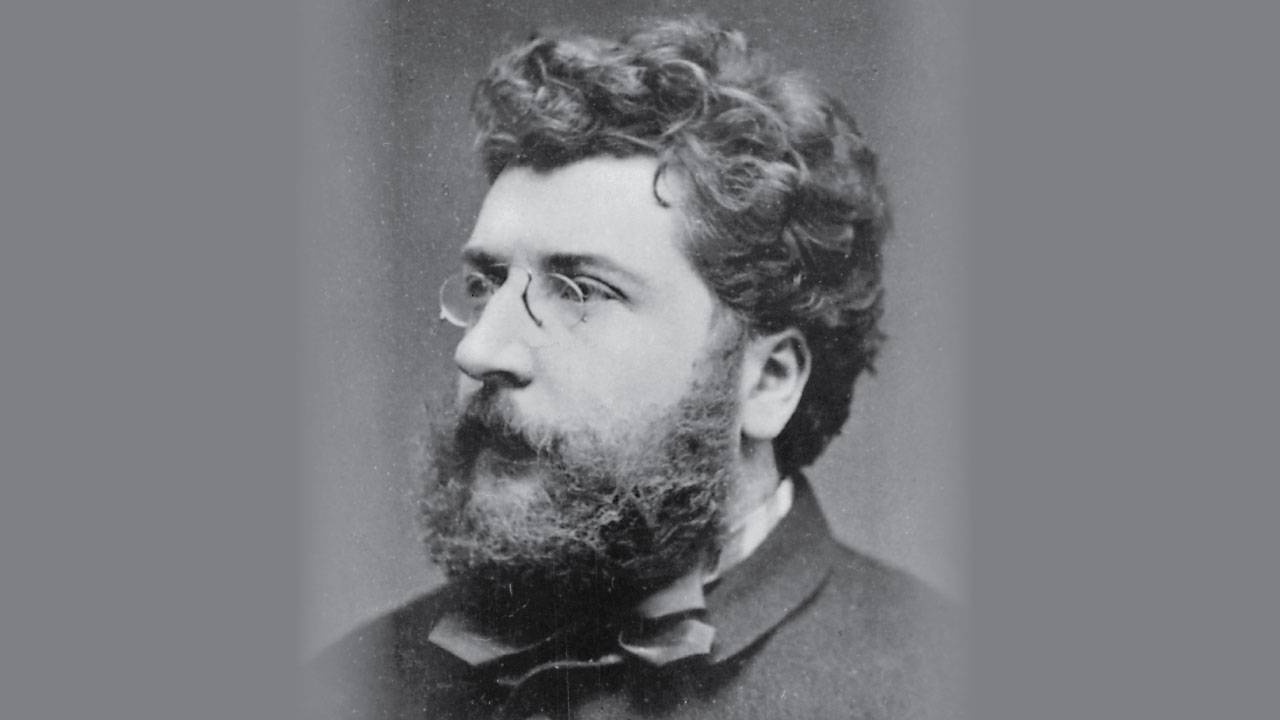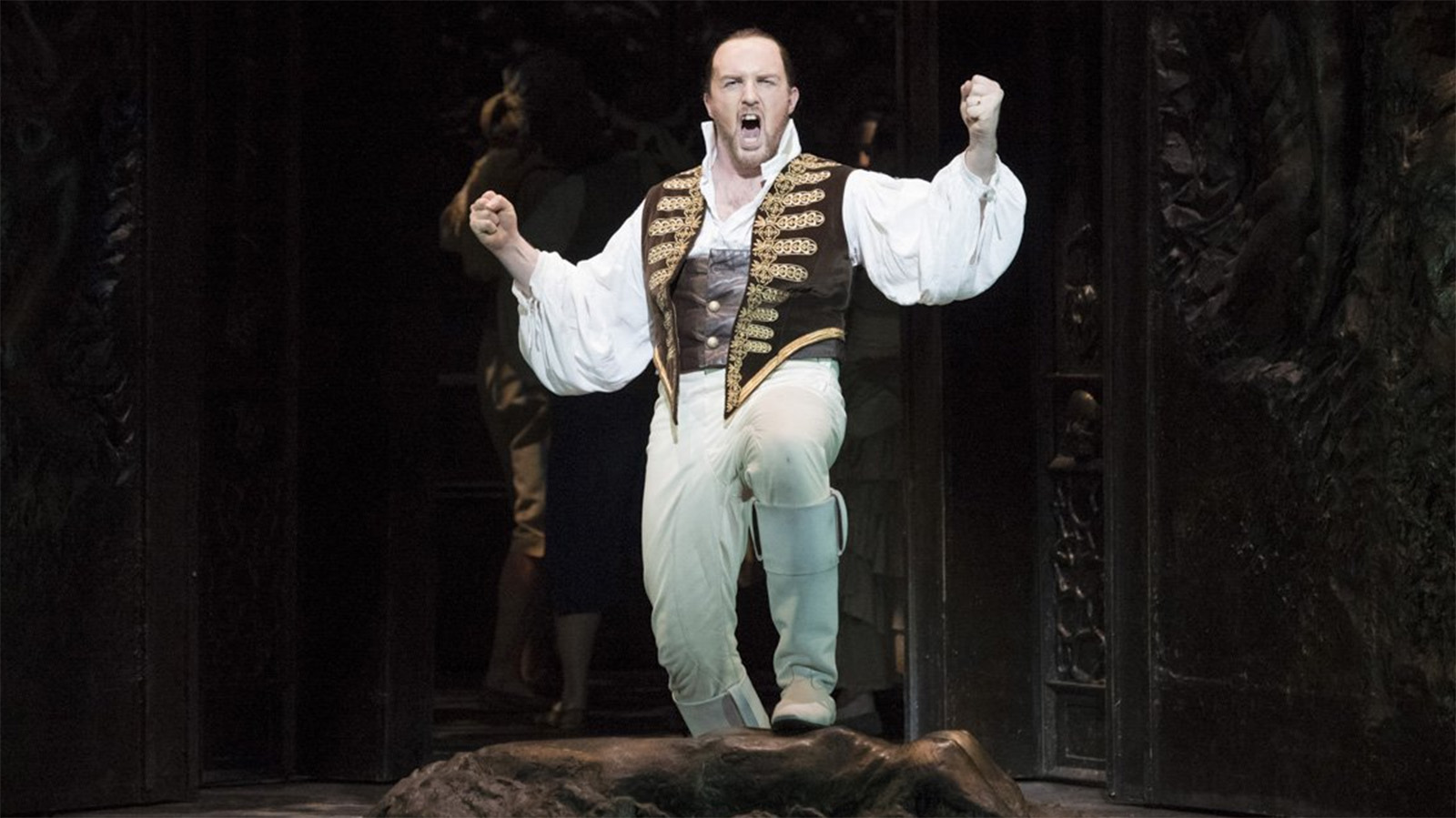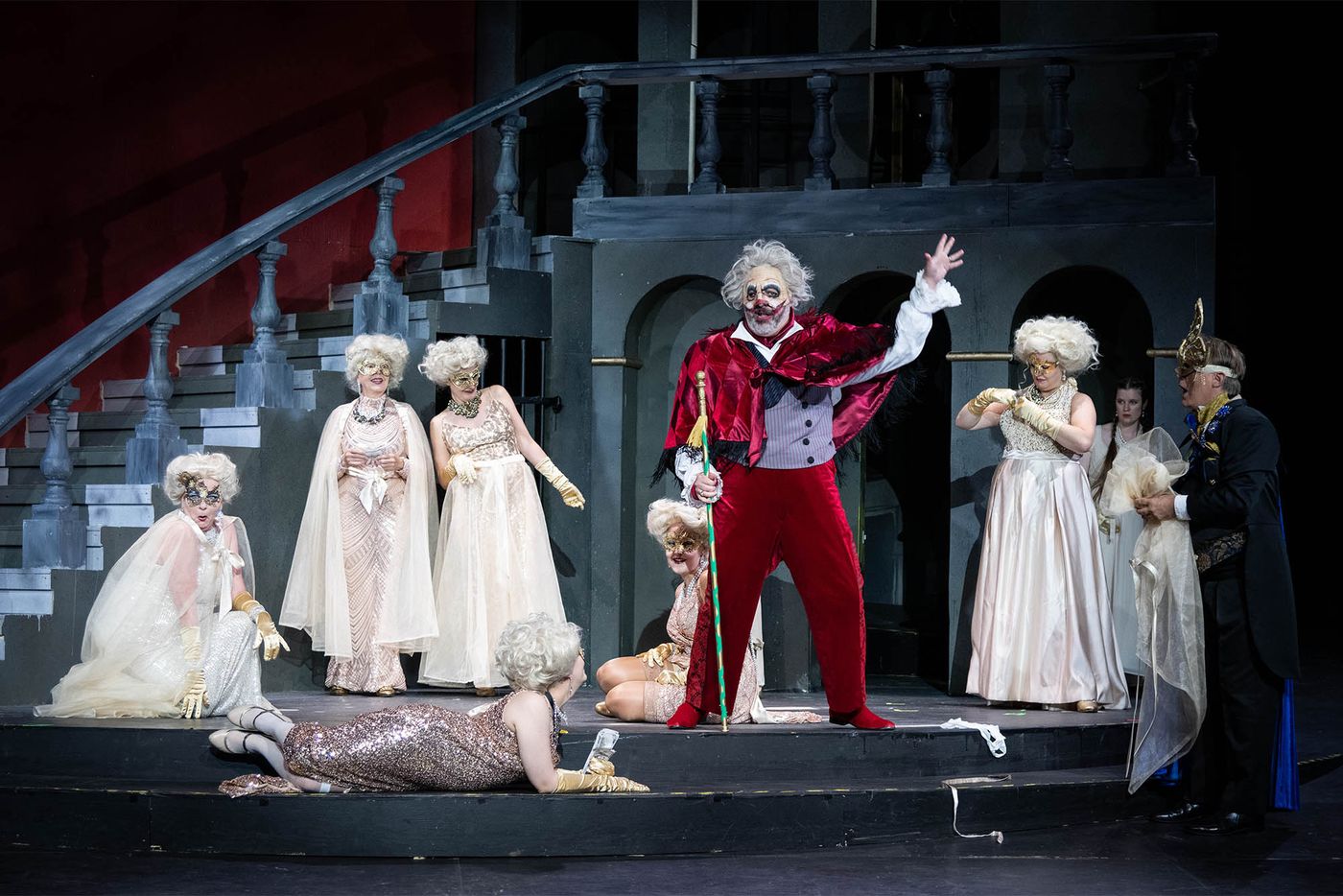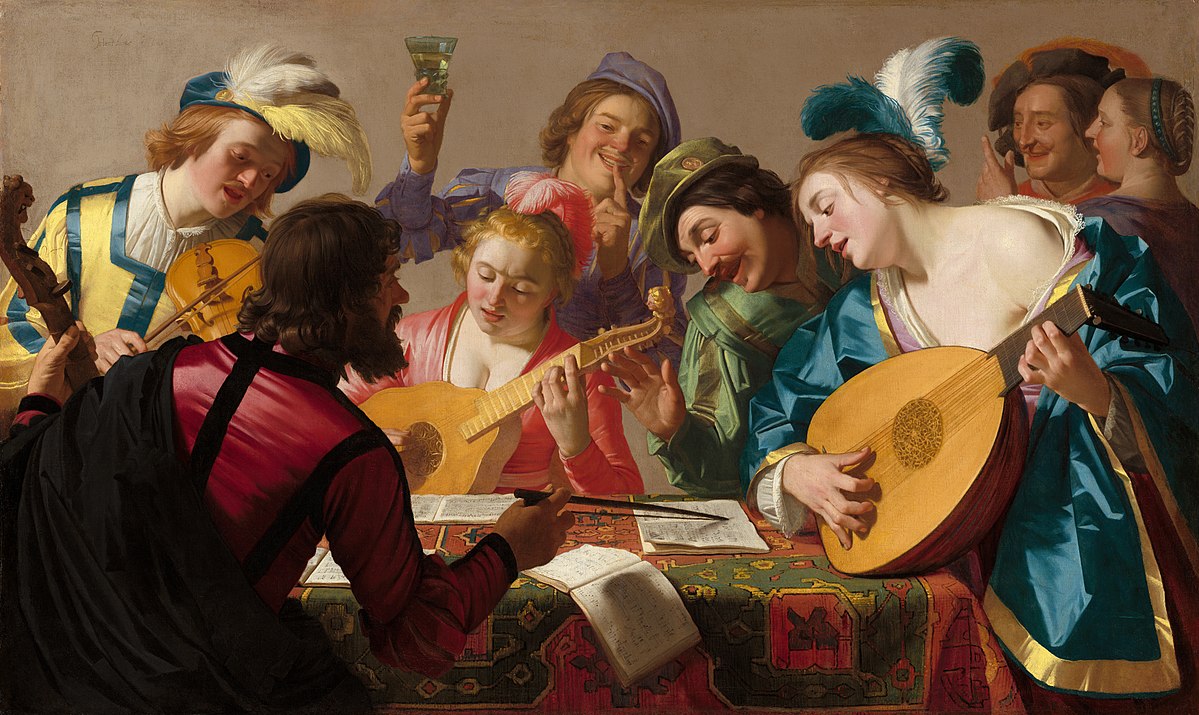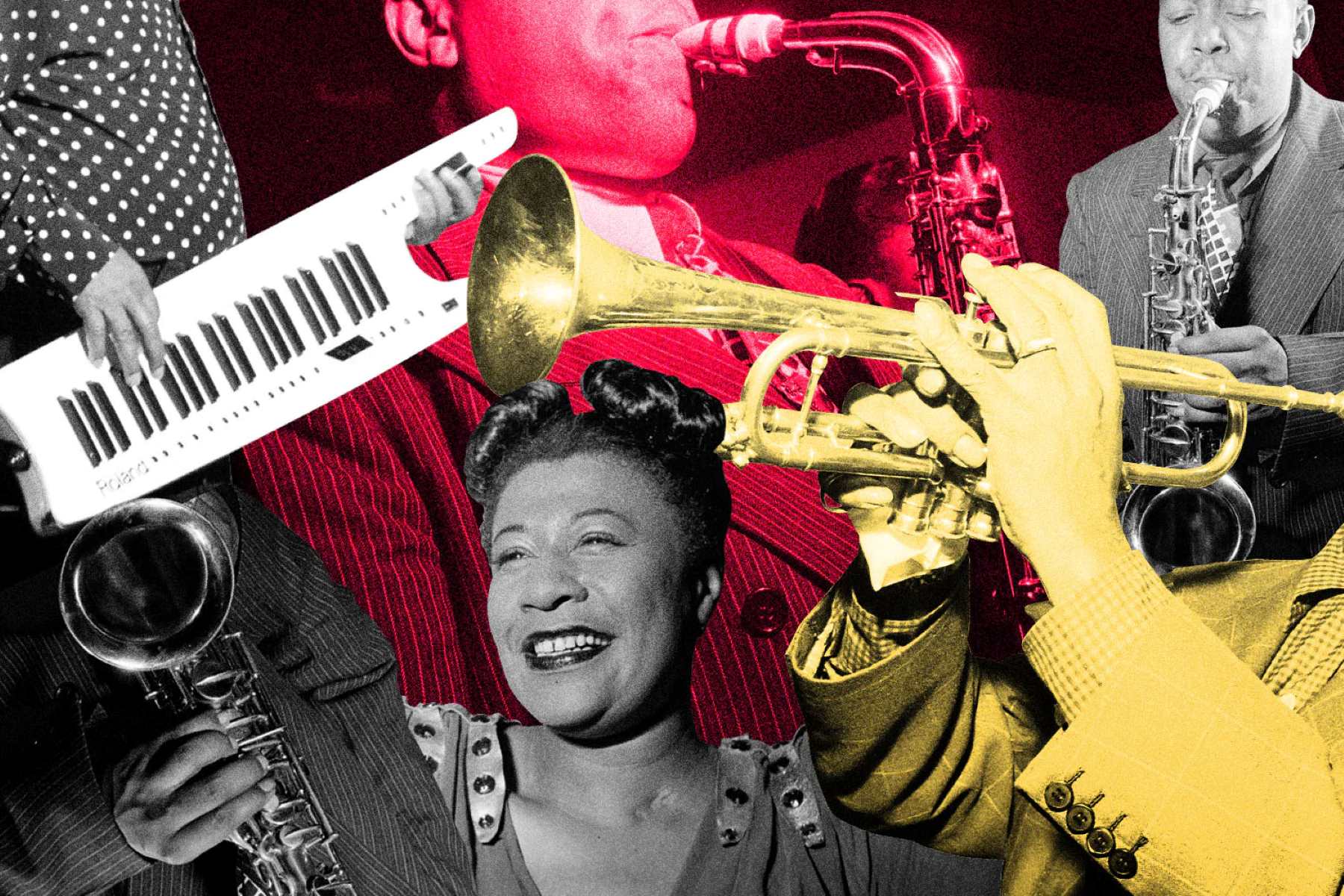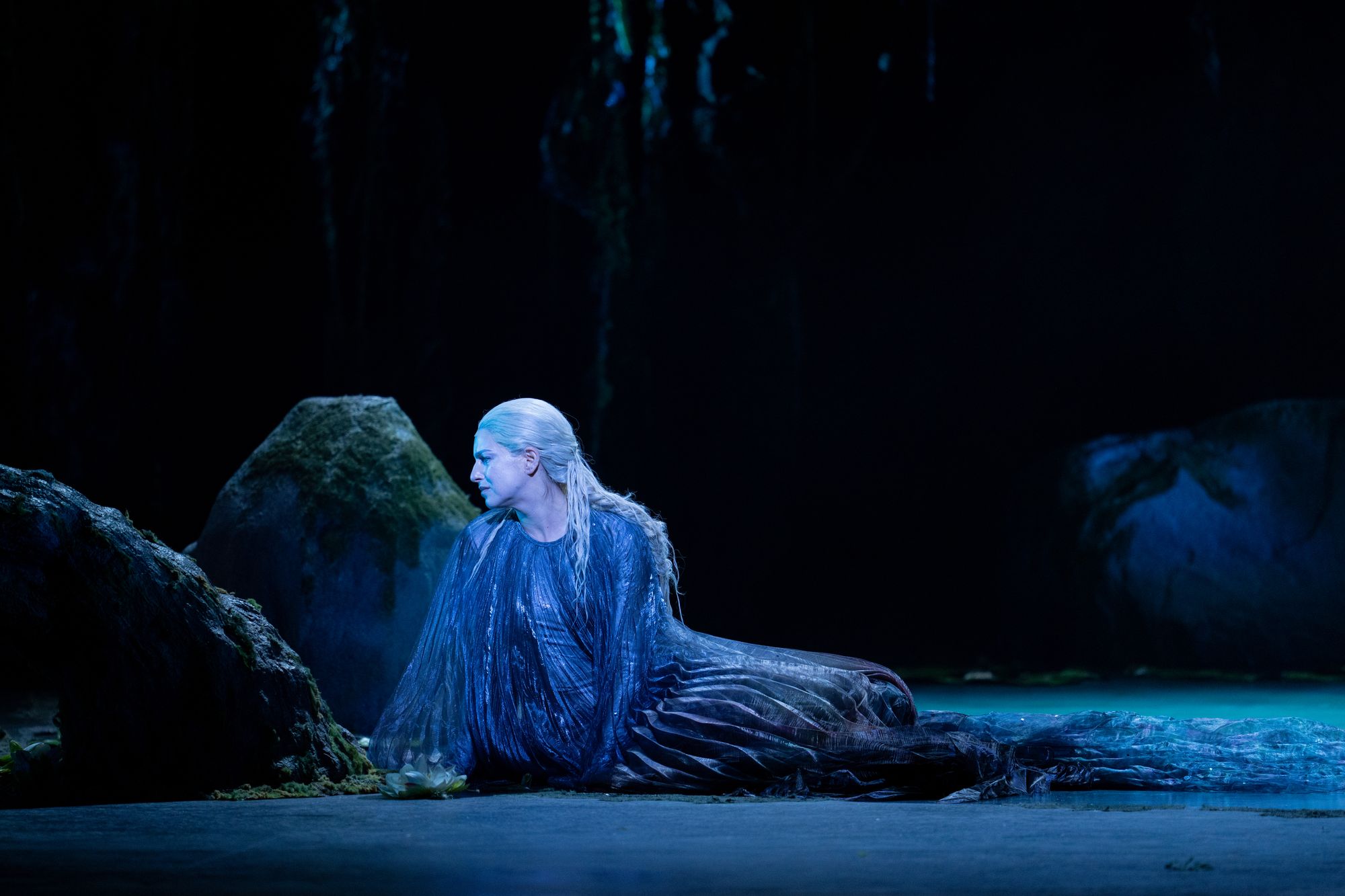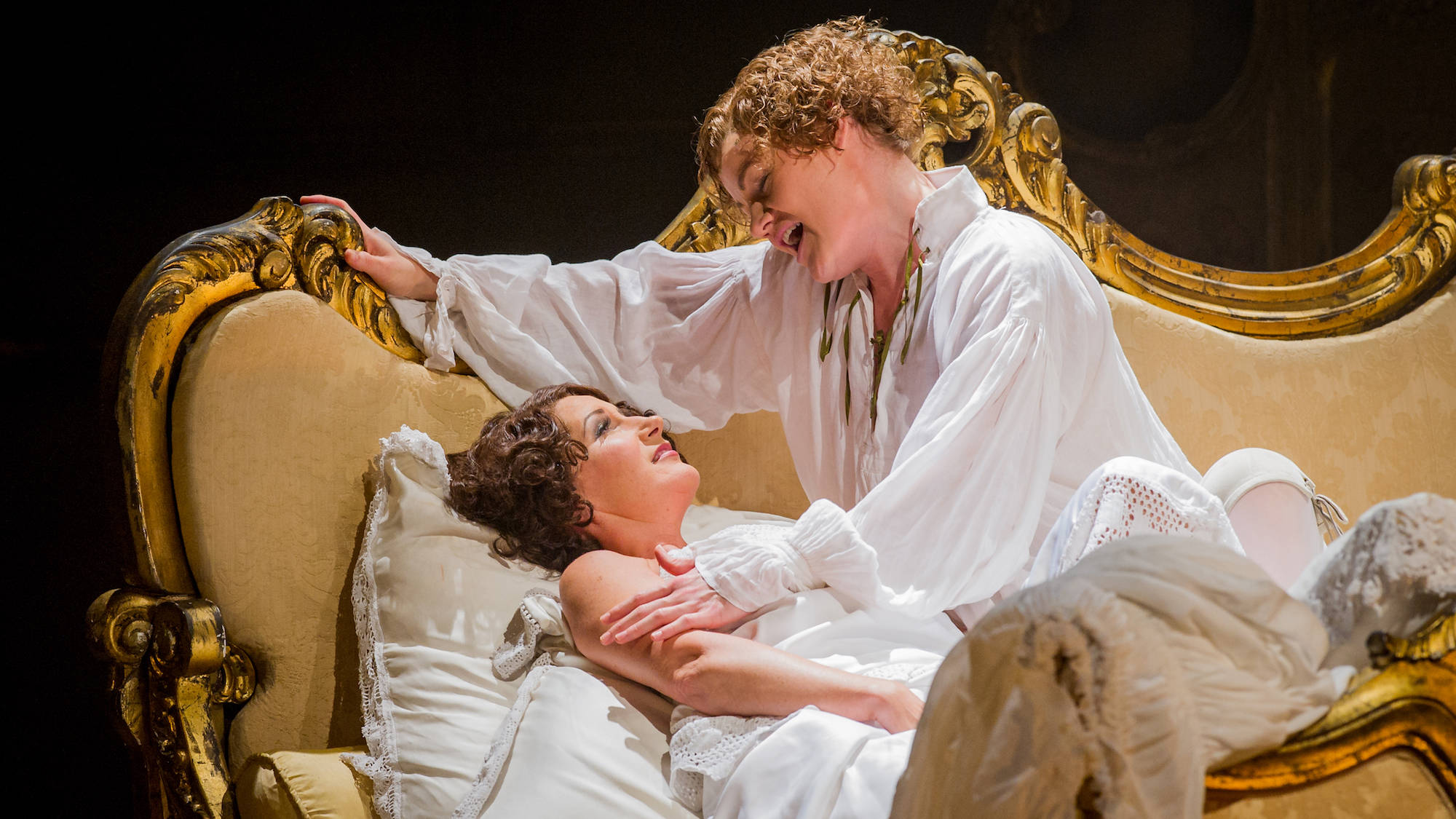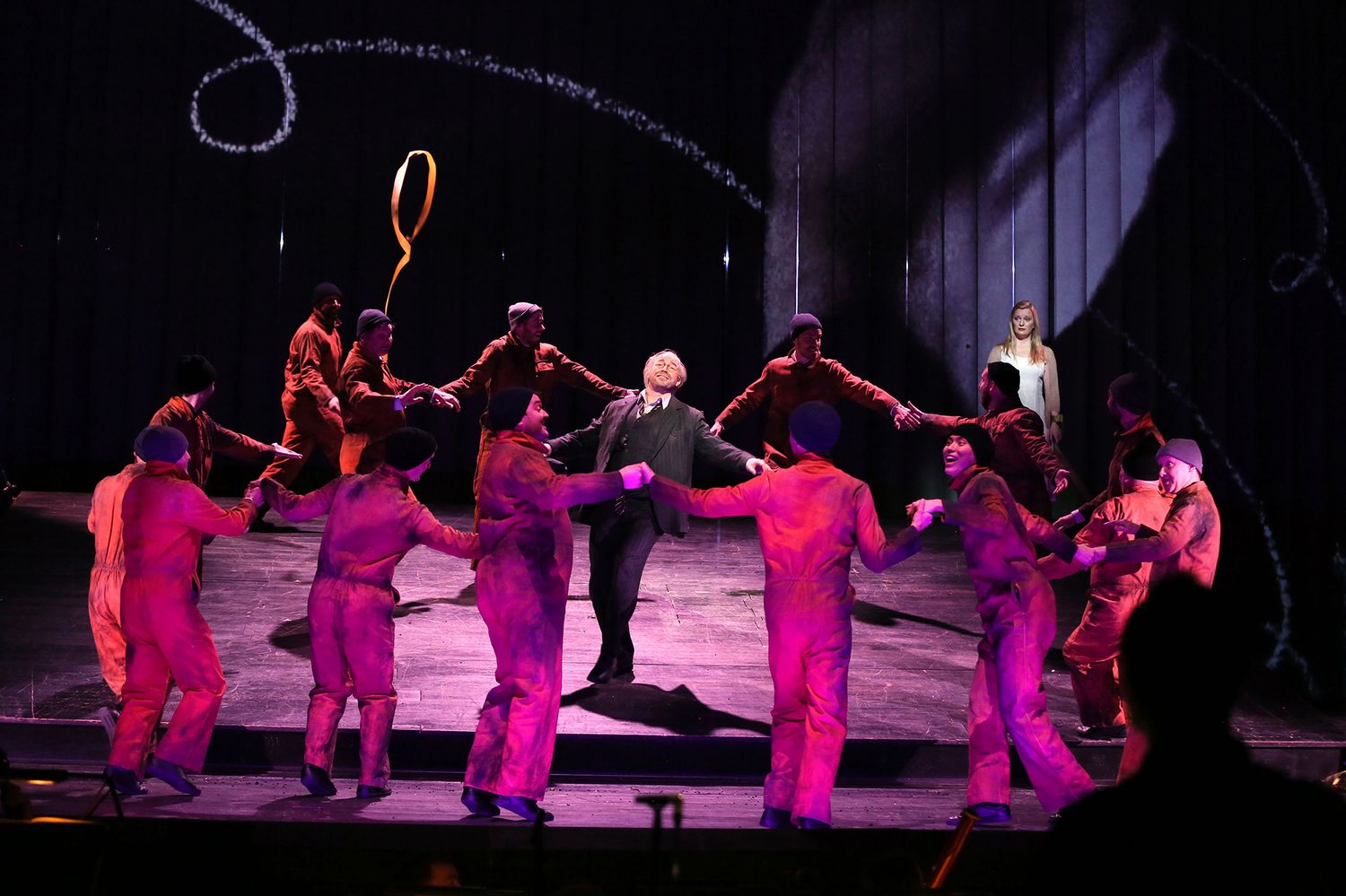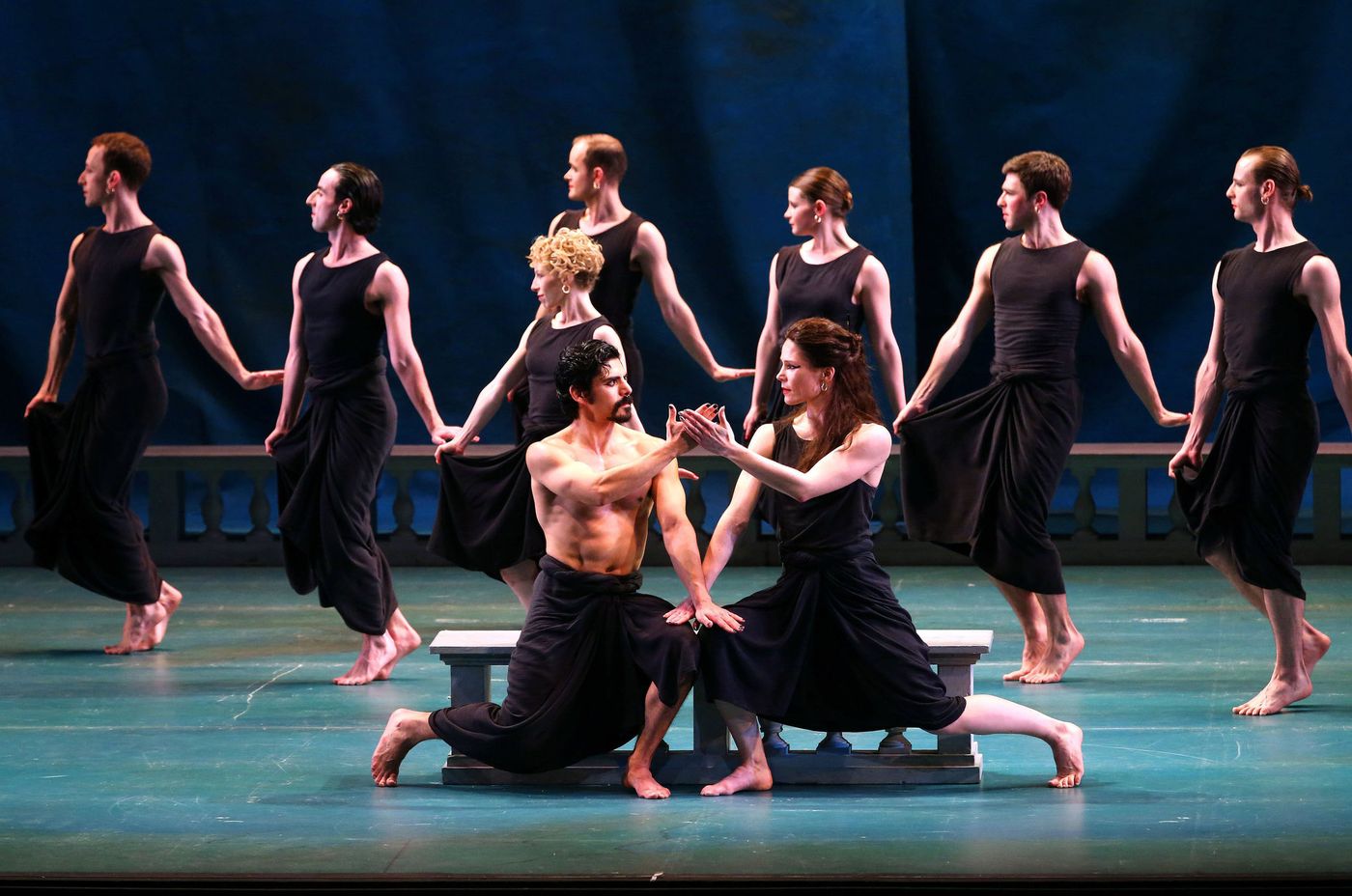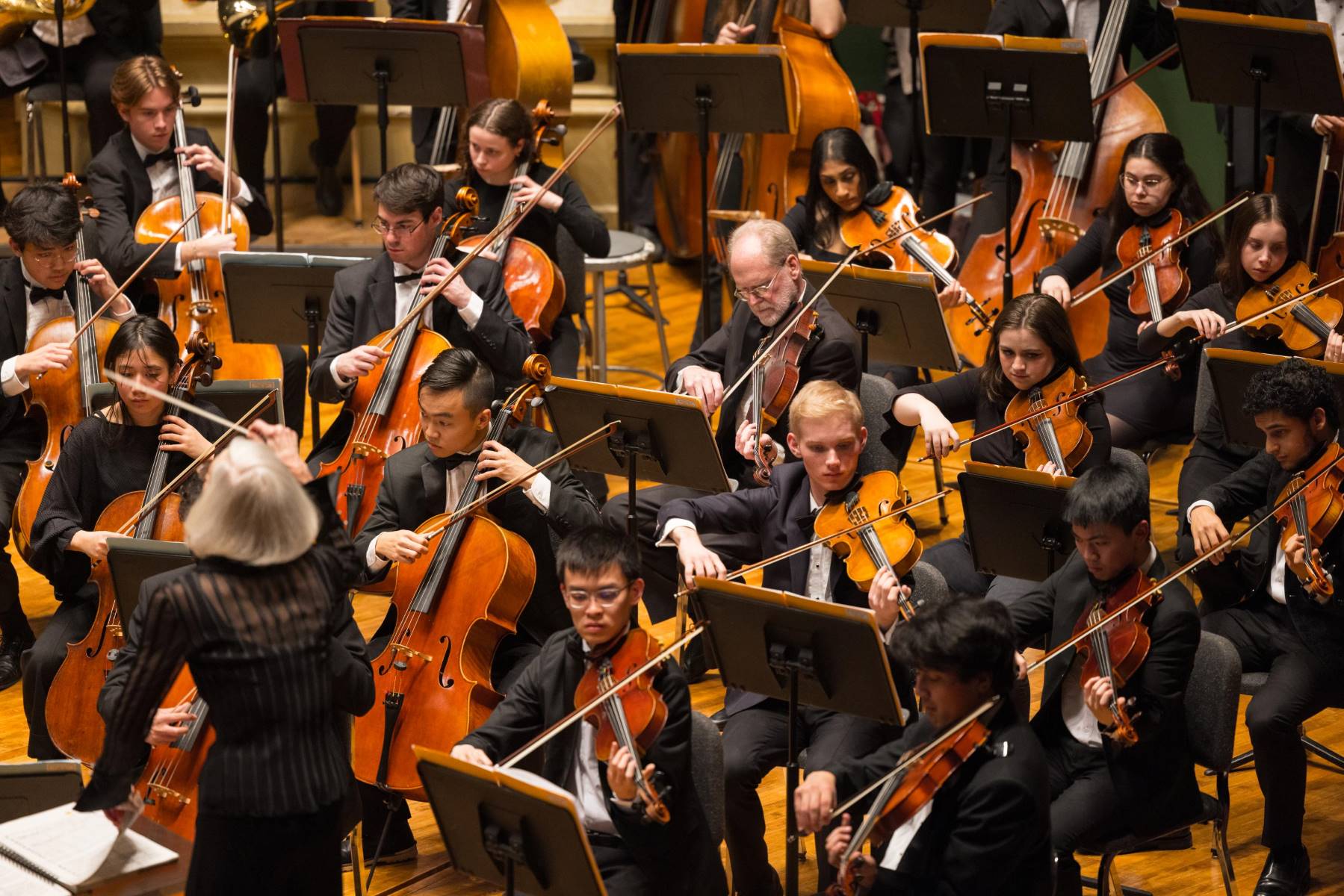Home>Production & Technology>Composer>Who Was The Most Famous German Opera Composer In The 19th Century
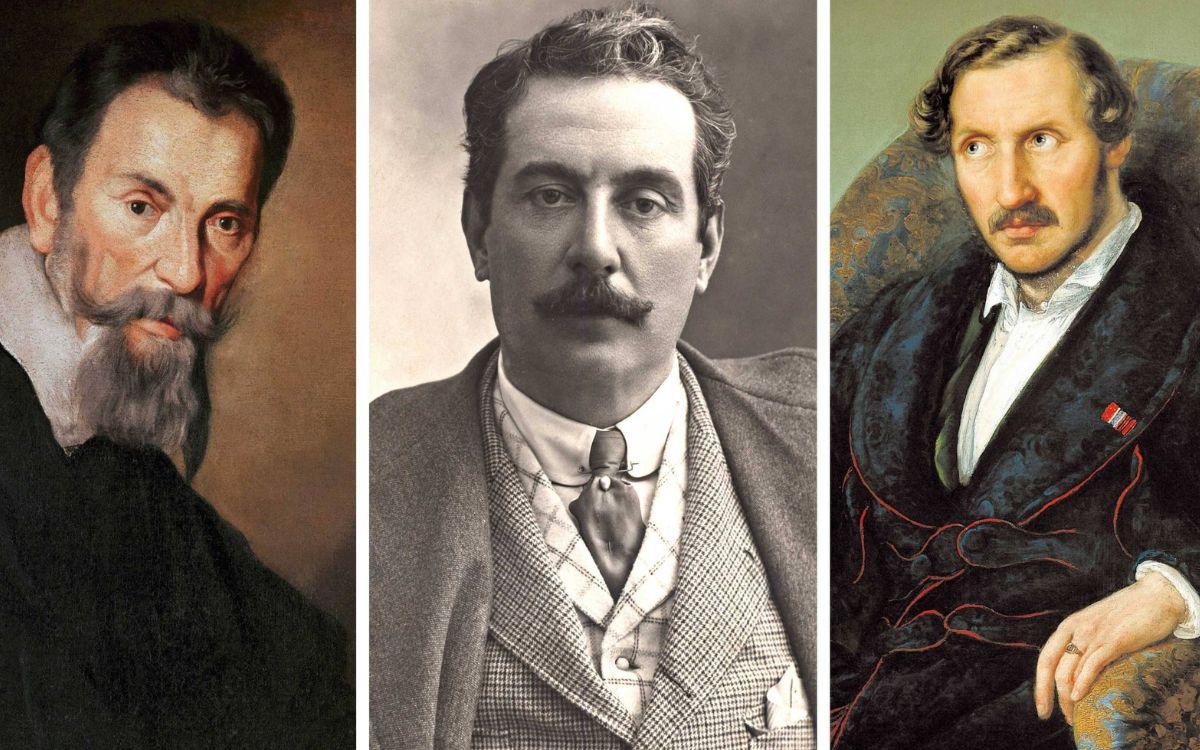

Composer
Who Was The Most Famous German Opera Composer In The 19th Century
Modified: January 31, 2024
Discover the most famous German composer of the 19th century. Uncover the enchanting works and legacy of this renowned composer.
(Many of the links in this article redirect to a specific reviewed product. Your purchase of these products through affiliate links helps to generate commission for AudioLover.com, at no extra cost. Learn more)
Table of Contents
Introduction
The 19th century was a period of great artistic and cultural transformation, and the world of opera was no exception. Among the many talented composers who emerged during this time, one name stands out as a true icon of German opera: Richard Wagner. Known for his grandiose compositions, captivating storytelling, and innovative techniques, Wagner is widely regarded as the most famous German opera composer of the 19th century.
Wagner’s impact on the world of opera is difficult to overstate. His works pushed the boundaries of the art form, revolutionizing both the musical and dramatic aspects of opera. His operas, such as “Tristan und Isolde,” “The Ring Cycle,” and “Die Meistersinger von Nürnberg,” are considered masterpieces that continue to be performed and celebrated today.
But Wagner’s journey to artistic greatness was not without its challenges. Born on May 22, 1813, in Leipzig, Germany, Wagner’s early years were marked by financial difficulties and personal struggles. However, his passion for music and determination to succeed propelled him forward, eventually leading him to become one of the most influential composers in history.
This article delves into the life, works, and enduring legacy of Richard Wagner, exploring the factors that made him such a significant figure in the world of opera. From his early life and background to his rise to prominence, we will uncover the key milestones and accomplishments that shaped Wagner’s illustrious career.
Early Life and Background
Richard Wagner was born on May 22, 1813, in Leipzig, Germany. His father, Carl Friedrich Wagner, was a police actuary, and his mother, Johanna Rosine Wagner, was a baker’s daughter. Wagner’s interest in music developed at an early age, and he began taking piano lessons when he was just six years old.
Despite a humble background, Wagner’s talent and passion for music soon became evident. He received a solid education in music theory and composition, studying at the Leipzig University and later at the Royal Conservatory of Dresden.
During his formative years, Wagner was heavily influenced by the works of Beethoven and Mozart. Their music inspired him to explore new territories within the realm of opera, pushing boundaries and breaking traditional conventions.
Wagner’s early career, however, was overshadowed by financial difficulties and personal setbacks. He struggled to find stable employment and often found himself in dire financial straits. Nonetheless, his determination to forge his own path in the world of opera never wavered.
In 1833, Wagner secured a position as a chorus master and conductor at the Würzburg Theater. This offered him valuable experience and a platform to refine his compositional skills. During this time, he immersed himself in the works of the Romantic composers and started experimenting with his own musical ideas.
Wagner’s artistic development continued to evolve as he gained exposure to different musical styles and genres. He became particularly interested in German folk tales, legends, and mythology, which would later serve as the basis for some of his most renowned works.
Despite early setbacks, Wagner’s determination and talent propelled him forward. In the next section, we will explore the rise to prominence of this visionary composer and the impact he had on the world of opera.
Rise to Prominence in the Opera World
Richard Wagner’s rise to prominence in the opera world was a gradual but transformative journey. His early experiences as a chorus master and conductor allowed him to refine his skills and gain valuable insights into the workings of the theater. However, it was his original compositions and revolutionary ideas that truly set him apart from his contemporaries.
One of the first major milestones in Wagner’s career came in 1839 when he premiered his opera, “Rienzi.” This opera, based on the life of an Italian Renaissance figure, gained moderate success and paved the way for his future endeavors. The dramatic power and melodic richness displayed in “Rienzi” foreshadowed the groundbreaking works that would follow.
Wagner’s breakthrough moment came in 1850 with the premiere of “Lohengrin” in Weimar, Germany. This opera, fueled by his innovative use of leitmotifs (recurring musical themes associated with characters or ideas), met with resounding success. Audiences were captivated by the emotional depth and intricate musical tapestry woven by Wagner.
It was during this period that Wagner started developing his concept of the “Gesamtkunstwerk,” or “total work of art.” He believed that opera should combine all art forms, including music, drama, poetry, dance, and visual design, to create a unified and immersive experience. This holistic approach became a hallmark of Wagner’s works and revolutionized the concept of opera as a gesamtkunstwerk.
Undoubtedly, Wagner’s most ambitious and renowned work is the monumental “Der Ring des Nibelungen” (The Ring Cycle). Comprising of four interconnected operas (“Das Rheingold,” “Die Walküre,” “Siegfried,” and “Götterdämmerung”), this epic saga explores themes of power, love, greed, and redemption, all set in a mythical world of gods, heroes, and supernatural beings. The scale and complexity of “The Ring Cycle” solidified Wagner’s reputation as a visionary composer.
Wagner’s operas were not without controversy, however. His nationalist sentiments and anti-Semitic views garnered criticism and led to his exile from Germany. He spent several years in Switzerland, where he continued to compose and refine his artistic vision.
Finally, in 1876, Wagner’s long-cherished dream became a reality with the opening of the Bayreuth Festspielhaus, a dedicated opera house designed specifically for the performance of his works. This venue, located in Bayreuth, Germany, allowed Wagner to oversee productions of his operas according to his exacting standards.
Richard Wagner’s rise to prominence in the opera world was not only a personal triumph but also a turning point in the history of opera. His innovative techniques, grandiose compositions, and visionary approach continue to influence and inspire composers to this day. In the next section, we will delve into the major works and contributions that cemented Wagner’s status as the most famous German opera composer of the 19th century.
Major Works and Contributions
Richard Wagner’s body of work encompasses a wide range of operas, orchestral compositions, and theoretical writings. However, his operas stand as the defining legacy of his musical genius. Let’s explore some of Wagner’s major works and the contributions they made to the world of opera.
One of Wagner’s earliest notable works is “The Flying Dutchman” (1843). This opera tells the story of a cursed sea captain doomed to sail the seas until true love sets him free. With its haunting melodies and lush orchestrations, “The Flying Dutchman” showcases Wagner’s ability to weave together music and drama to create a captivating narrative.
Another groundbreaking work is “Tristan und Isolde” (1865). Considered a masterpiece of Romantic opera, “Tristan und Isolde” explores themes of love, desire, and transcendent passion. Wagner’s use of chromatic harmonies and unresolved musical tension created a profound emotional intensity that would influence generations of composers.
However, Wagner’s most ambitious and monumental contribution to the world of opera is undoubtedly “Der Ring des Nibelungen” (The Ring Cycle). This epic tetralogy, comprising of “Das Rheingold,” “Die Walküre,” “Siegfried,” and “Götterdämmerung,” offers a vast mythological saga that explores themes of power, greed, love, and the cycle of human existence.
One of the key innovations in “The Ring Cycle” is Wagner’s use of leitmotifs. These recurring musical themes are associated with specific characters, ideas, or emotions, creating a musical tapestry that binds the entire cycle together. This compositional technique allowed Wagner to express complex emotions and highlight the interconnectedness of characters and events.
Wagner’s influence on the concept of opera extended beyond his compositional techniques. He advocated for a total work of art, where music, drama, poetry, visual design, and staging worked in harmony to create a unified theatrical experience. This concept challenged traditional notions of theatrical production and paved the way for new approaches to opera staging and design.
Furthermore, Wagner’s ideas on opera were not limited to his compositions. He penned several theoretical writings, including his influential treatise “Opera and Drama,” which delved into his vision of opera as the highest form of art. In these writings, Wagner expounded on the importance of unity between music and drama, emphasizing the role of music in conveying the emotional depth and dramatic essence of the narrative.
Richard Wagner’s major works and contributions revolutionized the world of opera, infusing it with heightened emotion, mythological themes, and an innovative approach to composition and theatrical production. His works continue to be performed and celebrated worldwide, ensuring his enduring legacy as the most famous German opera composer of the 19th century.
Influence and Legacy
The influence of Richard Wagner on the world of opera cannot be overstated. His innovative techniques, bold compositional style, and visionary approach to storytelling continue to shape the landscape of opera to this day. Let’s explore the enduring influence and legacy of this iconic composer.
Wagner’s use of leitmotifs revolutionized the way music was employed in opera. By associating specific musical themes with characters, ideas, or emotions, he created a seamless integration of music and drama, heightening the emotional impact of the narrative. This technique had a profound influence on subsequent composers, including Gustav Mahler and Richard Strauss, who expanded upon Wagner’s ideas in their own works.
Beyond his technical innovations, Wagner’s thematic explorations and philosophical ideas greatly influenced future generations of composers. His focus on exploring the human condition, the struggle between good and evil, and the power of love and redemption resonated with composers such as Giuseppe Verdi, Igor Stravinsky, and Arnold Schoenberg. Wagner’s influence can be seen in their works, as they grapple with similar themes and draw inspiration from his rich musical language.
Wagner’s concept of the “Gesamtkunstwerk,” or “total work of art,” also had a lasting impact on theatrical production and stage design. His vision of combining music, drama, poetry, dance, and visual design into a unified experience pushed the boundaries of traditional opera staging. This holistic approach continues to be explored and reinterpreted by directors and designers alike, resulting in innovative and immersive productions that breathe new life into Wagner’s operas.
Moreover, Wagner’s legacy goes beyond the realm of music. His nationalist sentiments, advocacy for German cultural identity, and his aspiration for a unified German state found resonance with the political and cultural climate of the time. His influence extended to other art forms as well, including literature, visual arts, and even cinema. Filmmakers such as Fritz Lang and Werner Herzog have drawn inspiration from Wagner’s mythological themes and grand storytelling techniques in their own works.
However, it is important to acknowledge that Wagner’s legacy is not devoid of controversy. His anti-Semitic views and the appropriation of his music by Nazi Germany during the 20th century have cast a shadow over his reputation. The complexities of his beliefs continue to be the subject of scholarly debate and moral scrutiny. It is a reminder that despite his musical genius, Wagner’s personal beliefs and actions are not to be overlooked or dismissed.
Regardless of the controversies surrounding him, Richard Wagner’s contributions to the world of opera and music as a whole endure. His innovations, thematic explorations, and visionary approach continue to inspire and captivate audiences and artists alike. His works are regularly performed in opera houses around the world, attracting both devoted admirers and new generations of opera enthusiasts. In this way, Wagner’s legacy remains an integral part of the fabric of classical music and ensures his place as one of the most influential composers in history.
Conclusion
Richard Wagner, the most famous German opera composer of the 19th century, left an indelible mark on the world of music and opera. His innovative techniques, grandiose compositions, and visionary approach to storytelling transformed the art form, pushing boundaries and inspiring generations of composers and performers.
Wagner’s journey from humble beginnings to artistic greatness showcases the power of determination and passion. Despite personal struggles and financial difficulties, he persisted in pursuing his musical career, eventually achieving worldwide recognition for his contributions to opera.
His major works, including “The Flying Dutchman,” “Tristan und Isolde,” and the monumental “Der Ring des Nibelungen,” continue to captivate audiences with their emotional depth, intricate musical tapestry, and profound thematic explorations.
Wagner’s influence extends beyond the realm of music. His concept of the “total work of art” revolutionized opera staging and design, inspiring new approaches and immersive experiences. His theories and ideas influenced composers, directors, and designers across various art forms, leaving a lasting impact on the cultural landscape.
While Wagner’s legacy is not without controversy, particularly in regard to his nationalist sentiments and anti-Semitic views, it is essential to recognize the complexity of his character and fully acknowledge the moral debates surrounding his personhood.
Nevertheless, Wagner’s artistic contributions remain undeniable. His influence can be felt in the works of composers who followed him, the staging of contemporary opera productions, and the ongoing appreciation and exploration of his rich musical language and thematic explorations.
Richard Wagner’s status as the most famous German opera composer of the 19th century is not merely a title, but a testament to his immense talent, unwavering determination, and lasting impact on the world of opera and classical music as a whole.
Truly, Wagner’s legacy continues to endure, inspiring and captivating audiences with his powerful music and groundbreaking ideas. His contributions serve as a reminder of the transformative power of art and the profound influence that a single individual can have on an entire artistic genre.

